Find Help
More Items From Ergsy search
-
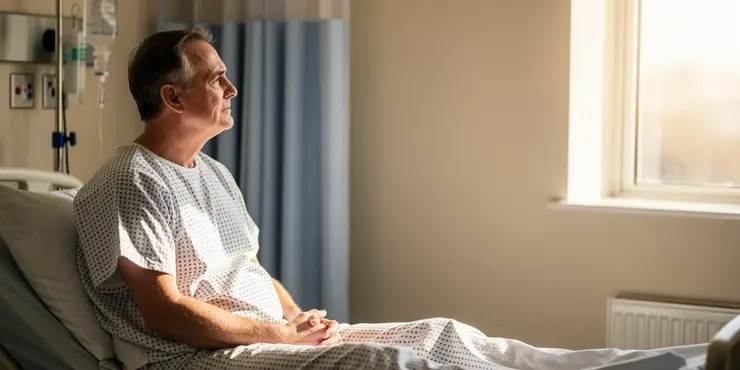
Having a colonoscopy in hospital - Patient Guide
Relevance: 100%
-
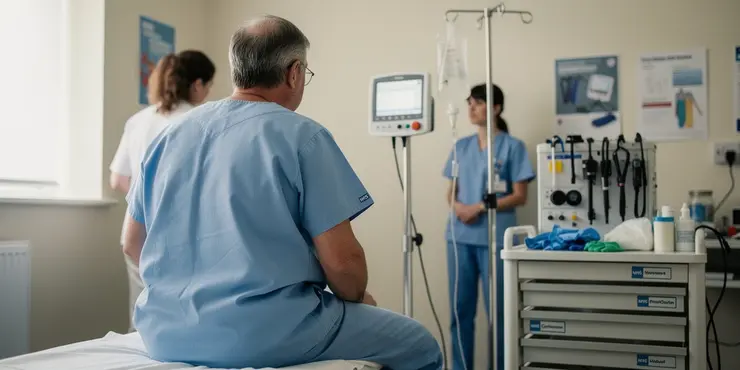
What to expect at your colonoscopy
Relevance: 64%
-
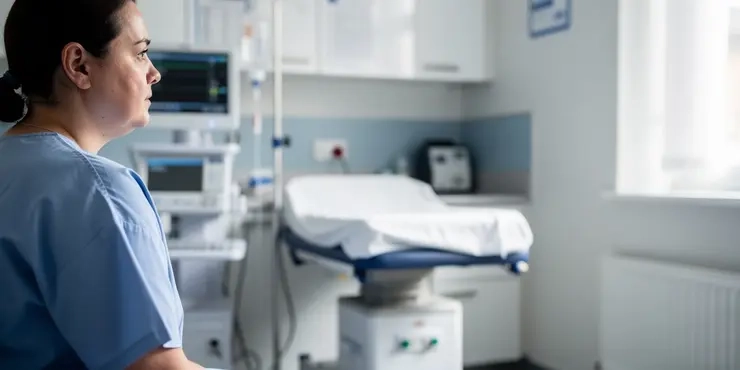
What happens during a colonoscopy?
Relevance: 64%
-
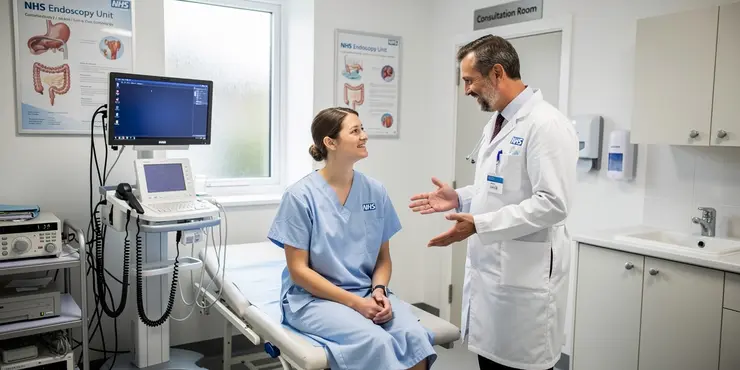
What happens during a colonoscopy? | NHS
Relevance: 63%
-
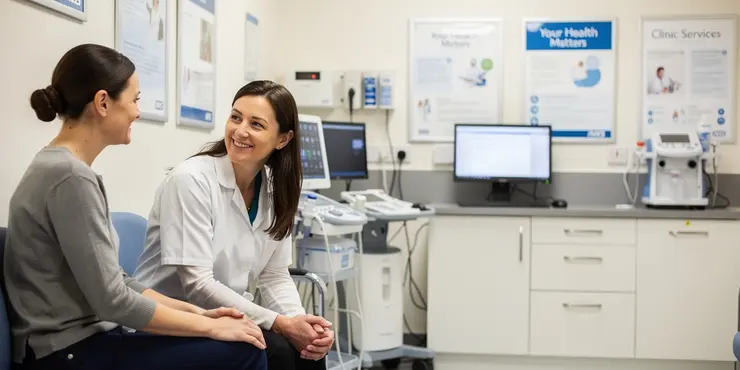
Endoscopy Procedures | Colonoscopy
Relevance: 63%
-
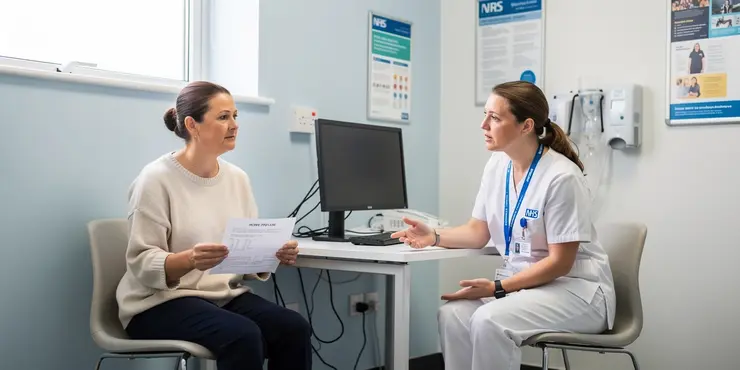
Is a colonoscopy necessary after a positive home test?
Relevance: 56%
-
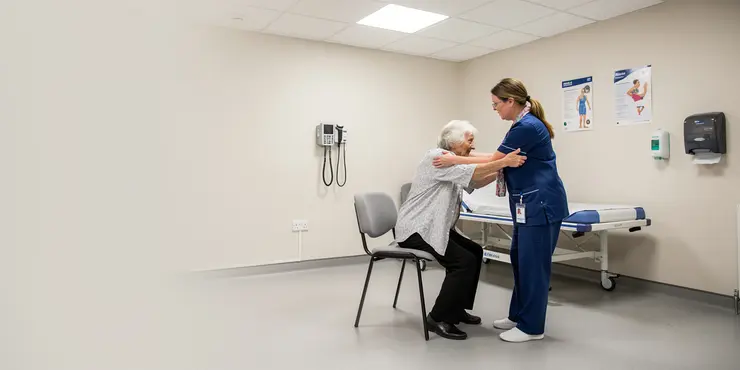
Fallsafe - Put the patient first. Preventing falls in Hospital.
Relevance: 55%
-
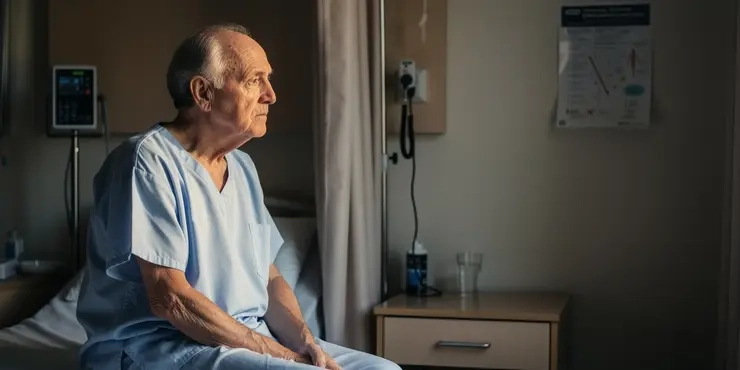
Delirium: A Patient Story at Leicester's Hospitals
Relevance: 53%
-
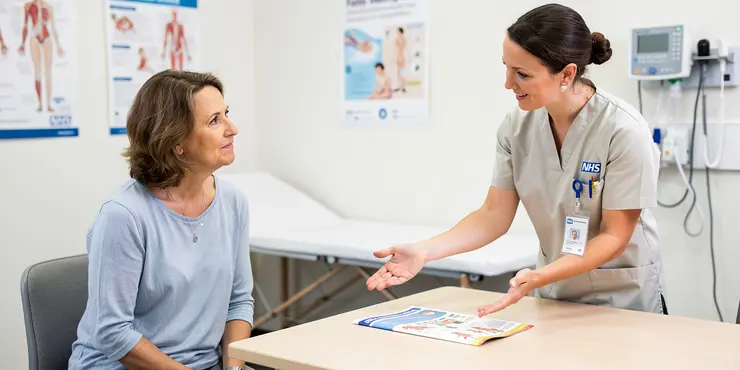
Falls Prevention video for patients attending hospital
Relevance: 52%
-
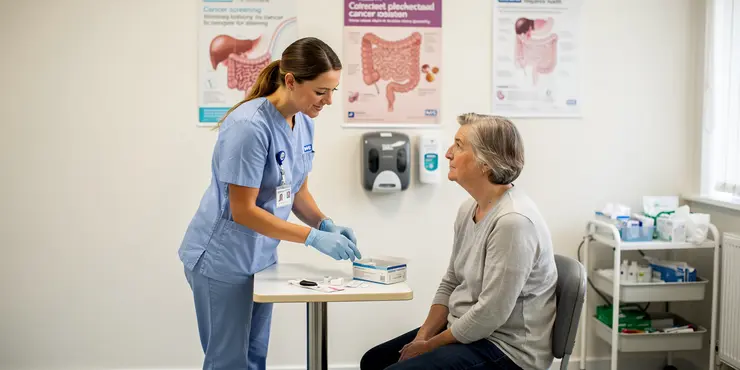
Can home colorectal cancer tests replace a colonoscopy?
Relevance: 49%
-
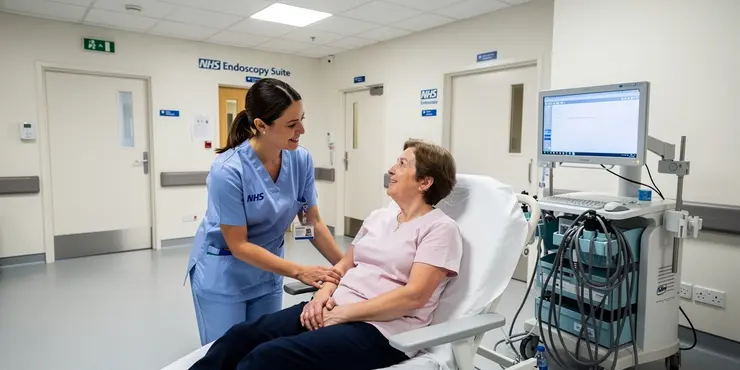
A guide to the new Endoscopy Suite at Chesterfield Royal Hospital NHS Foundation Trust
Relevance: 44%
-
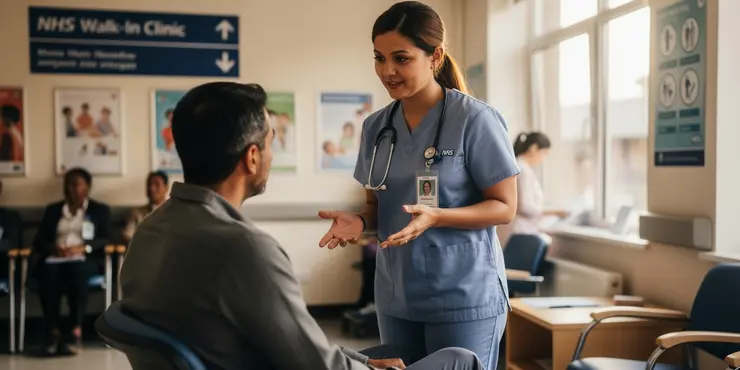
Will language barriers be an issue in EU hospitals?
Relevance: 42%
-
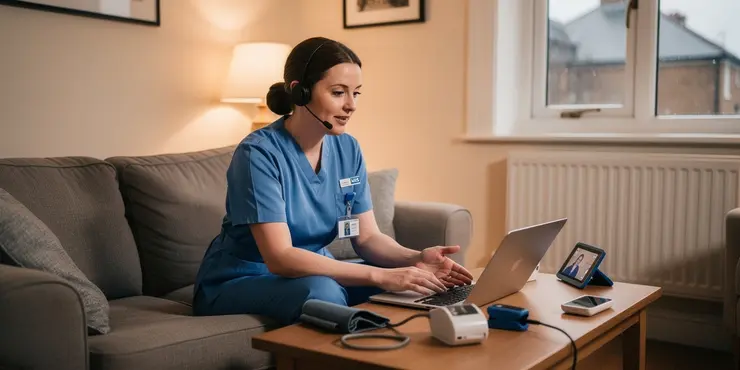
Can virtual wards reduce hospital overcrowding?
Relevance: 40%
-
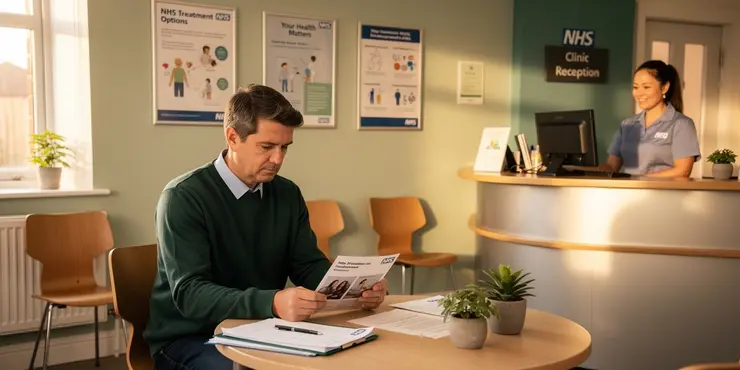
How do I find a suitable hospital or clinic for my treatment?
Relevance: 40%
-
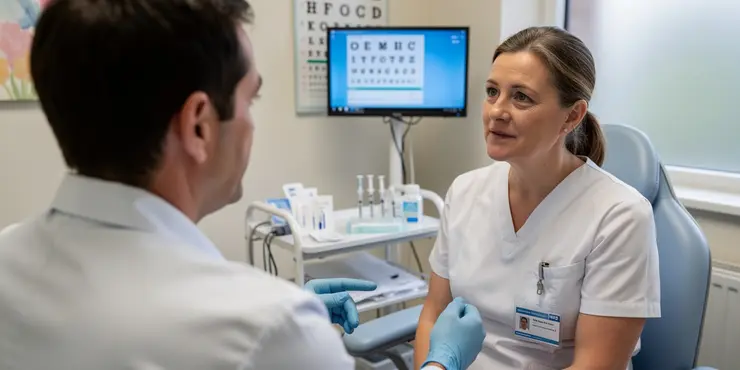
Eye Injections at Royal Bournemouth Hospital
Relevance: 38%
-
Does the NHS offer an online hospital for prostate cancer?
Relevance: 38%
-
Are waiting times for operations the same across all hospitals?
Relevance: 38%
-
Do private hospitals have shorter waiting times for operations?
Relevance: 38%
-
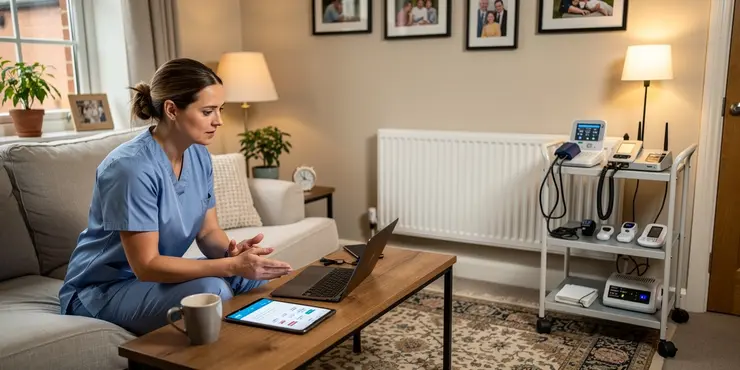
How do virtual wards improve patient outcomes?
Relevance: 38%
-
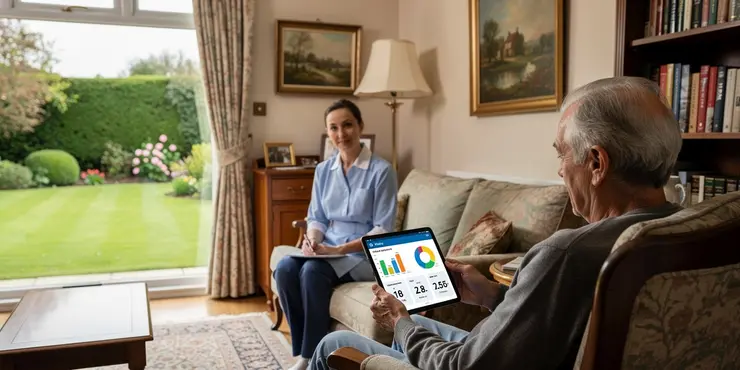
Are virtual wards suitable for elderly patients?
Relevance: 38%
-
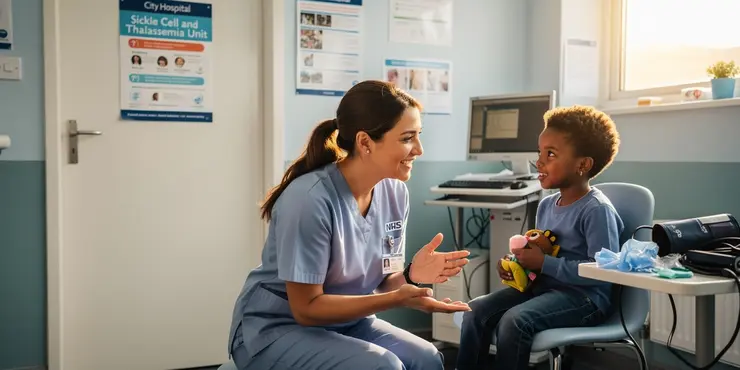
Tour of the Sickle Cell and Thalassaemia Unit at City Hospital | SCaT
Relevance: 37%
-
How can healthcare providers prevent the spread of flesh-eating bacteria in hospitals?
Relevance: 37%
-
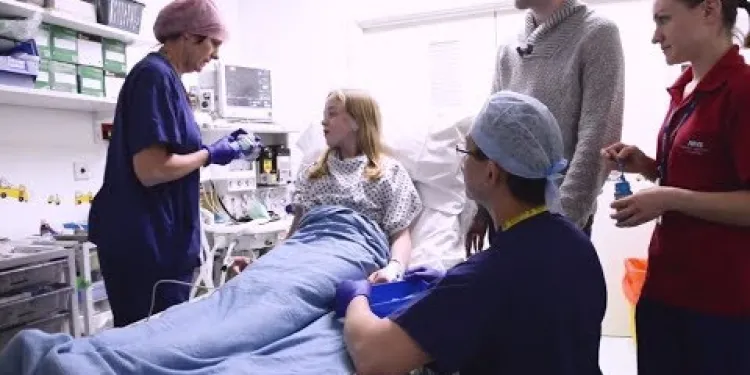
Having an operation in Oxford Children's Hospital with YiPpEe
Relevance: 37%
-
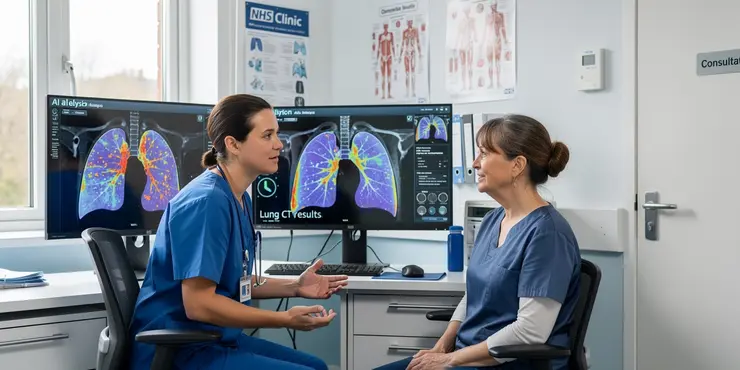
Is AI technology in lung cancer detection widely accepted by hospitals?
Relevance: 36%
-
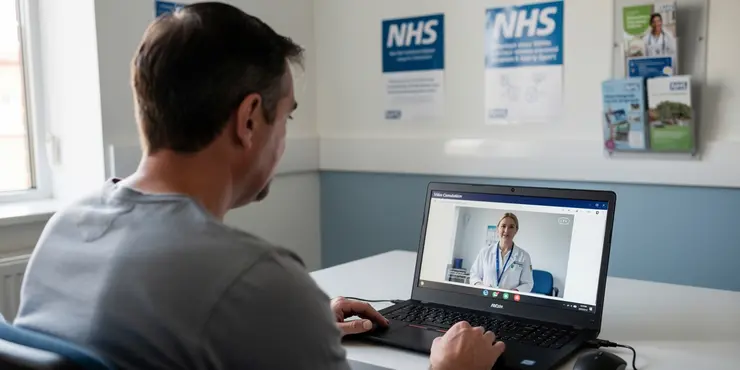
Does the NHS offer an online hospital for prostate cancer?
Relevance: 36%
-
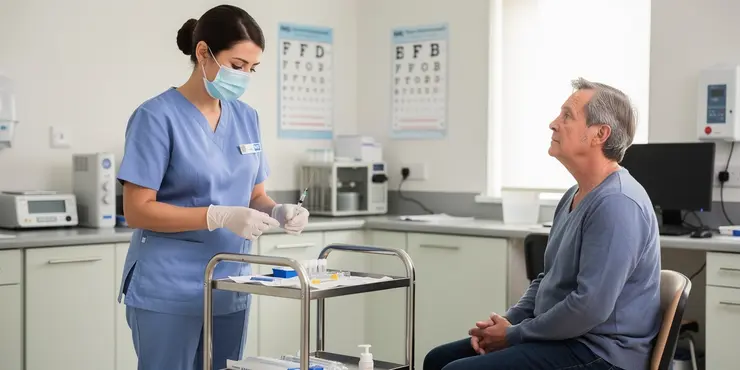
Eye Injections at Royal Bournemouth Hospital
Relevance: 36%
-
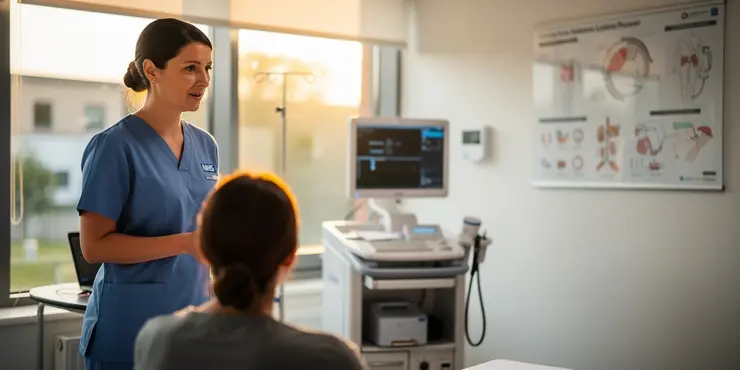
Radiotherapy Services at University Hospital
Relevance: 36%
-
Can I shorten my waiting time by choosing a different hospital?
Relevance: 36%
-
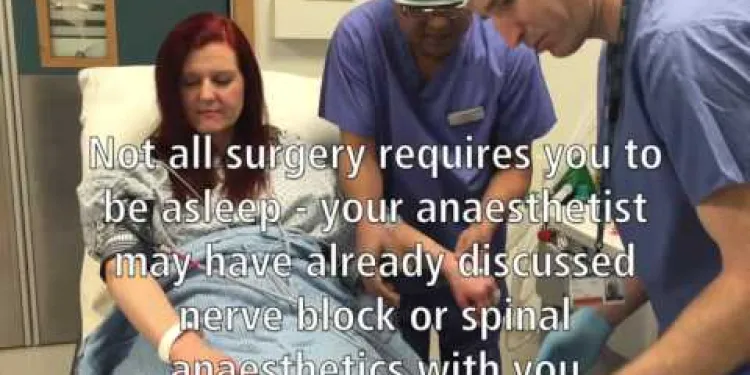
Your Operation at East Surrey Hospital
Relevance: 35%
-
How can I find current waiting times for operations in my local hospital?
Relevance: 35%
-
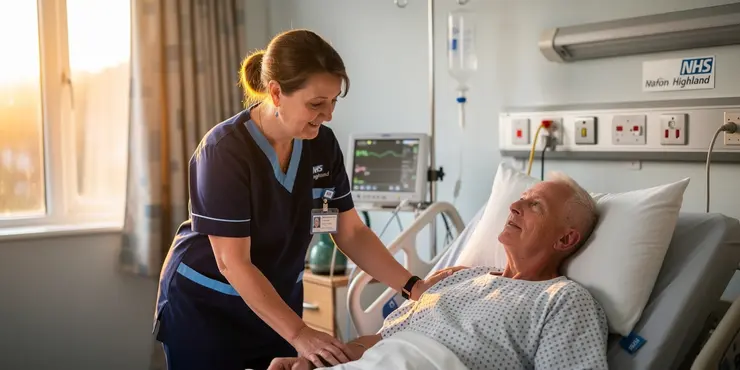
Heart attack care - Raigmore Hospital Inverness, NHS Highland
Relevance: 35%
-

How long will I stay in hospital after a C-section?
Relevance: 35%
-
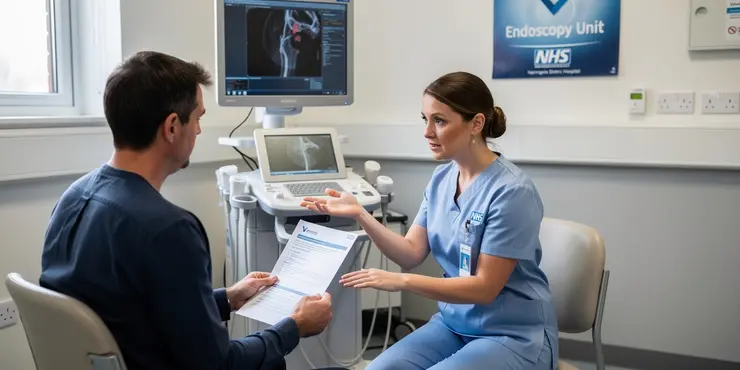
Coming to the Endoscopy Unit at Harrogate District Hospital
Relevance: 35%
-
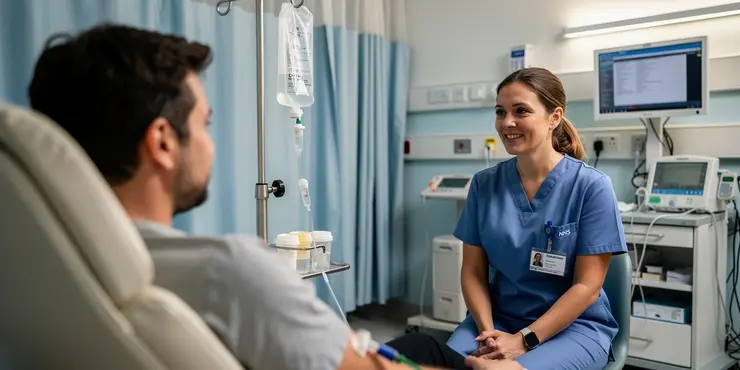
Infliximab infusion (Remicade) for Crohns Disease at Addenbrookes NHS hospital
Relevance: 34%
-
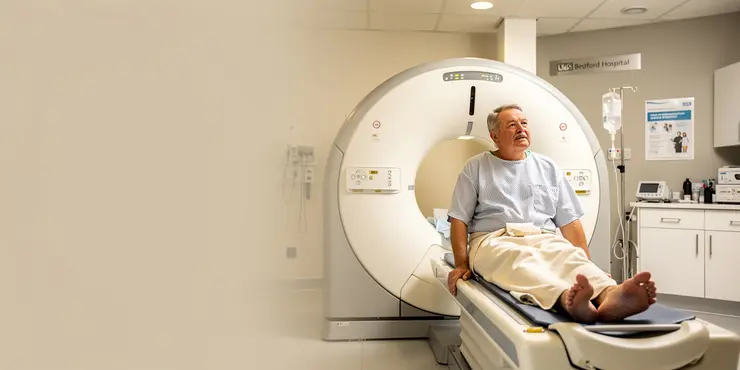
Having a CT scan in Hospital - What's it like having a CT scan at Bedford Hospital?
Relevance: 33%
-
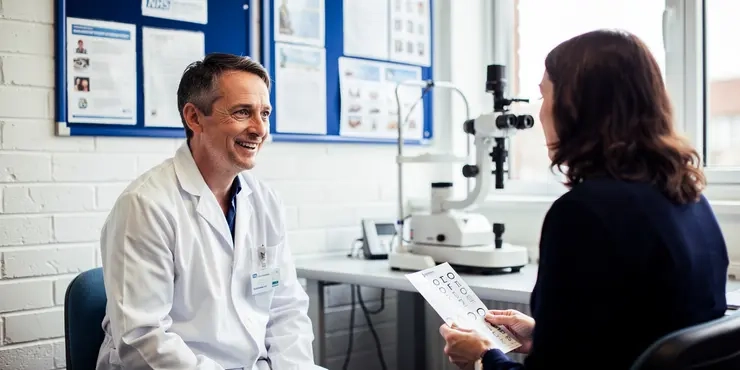
Glaucoma: about the Ophthalmology Team at University Hospitals Birmingham NHS Foundation Trust
Relevance: 33%
-
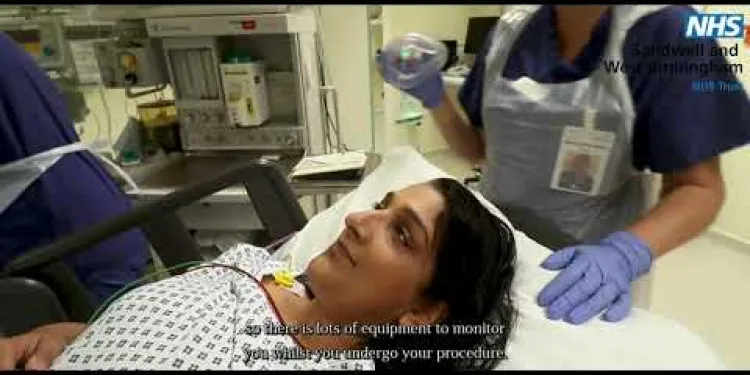
What to expect when visiting our hospitals for surgery | Theatres
Relevance: 33%
-
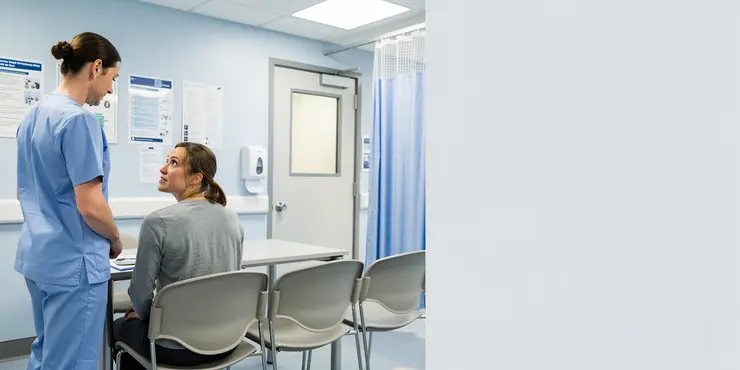
Sandwell and West Birmingham Hospitals NHS Trust – Faecal Incontinence and Constipation Healthcare
Relevance: 32%
-
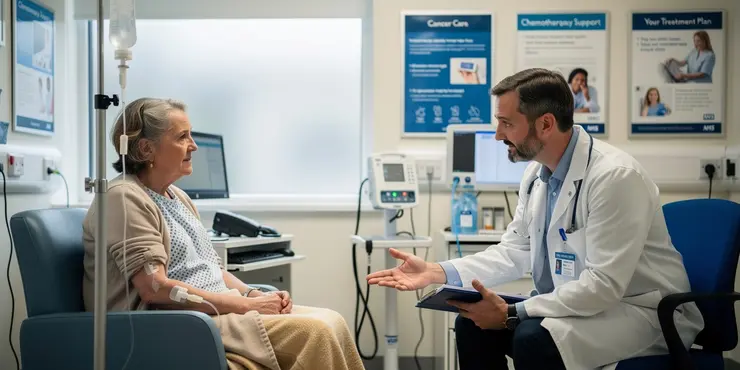
Chemotherapy - the patient journey
Relevance: 32%
-
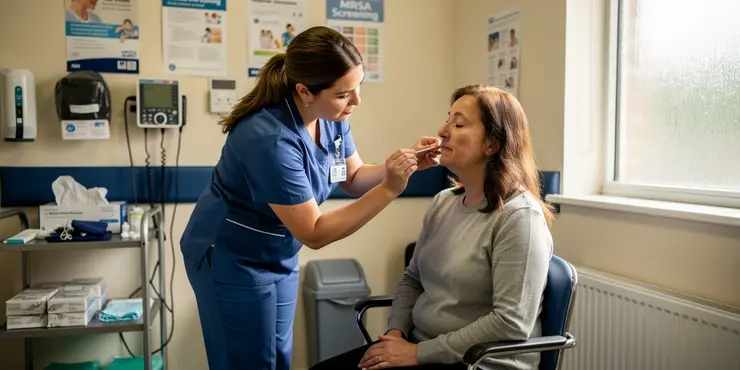
MRSA Screening at Chesterfield Royal Hospital NHS Foundation Trust
Relevance: 31%
Having a Colonoscopy in Hospital - Patient Guide
Introduction
A colonoscopy is a medical procedure that allows doctors to examine the inside of your large intestine (colon) using a flexible tube with a camera called a colonoscope. This guide provides essential information for patients in the United Kingdom who are scheduled to have a colonoscopy in a hospital setting.
Preparation
Preparation is crucial for a successful colonoscopy. You will need to follow a specific diet and take a bowel preparation solution to clear your intestines. You might be advised to avoid high-fibre foods a few days prior and switch to clear liquids (such as broth and clear juices) the day before the procedure. Detailed instructions will be provided by your healthcare team.
During the Procedure
On the day of the colonoscopy, you will be given sedation to ensure you are comfortable. The colonoscope will be inserted into your rectum and gently threaded through your colon. The doctor may take biopsies or remove polyps if necessary. The entire process usually takes about 30-60 minutes.
Post-Procedure
After the procedure, you will be monitored until the effects of the sedation wear off. You might experience some bloating or cramping, which generally subsides quickly. It's important to arrange for someone to drive you home, as it may not be safe for you to do so yourself. Your doctor will discuss the findings with you and provide any necessary follow-up instructions.
Possible Risks
While colonoscopies are generally safe, there are some risks to be aware of, including bleeding, infection, and perforation of the colon. If you experience severe abdominal pain, fever, or significant bleeding after the procedure, contact your healthcare provider immediately.
Conclusion
Having a colonoscopy is an essential tool in diagnosing and preventing various gastrointestinal conditions, including colorectal cancer. By following your healthcare provider's instructions, you can help ensure a smooth and effective procedure. If you have any concerns or questions, do not hesitate to reach out to your medical team for support.
Having a Colonoscopy in Hospital - Patient Guide
Introduction
A colonoscopy is a special test that helps doctors look inside your large intestine. They use a long, bendy tube with a camera on it. This guide is for people in the UK who will have a colonoscopy in a hospital.
Preparation
Getting ready is very important for a colonoscopy. You will need to eat certain foods and take special medicine to clean your intestines. You might need to avoid foods with lots of fiber for a few days before. You can have clear drinks like broth and clear juices the day before. Your doctor will tell you exactly what to do.
During the Procedure
On the day of the test, you will get medicine to help you relax. The doctor will gently put the tube into your bottom to look at your intestine. The test usually takes 30 to 60 minutes. The doctor might take a small piece of tissue or remove growths if they need to.
Post-Procedure
After the test, you will rest until the medicine wears off. You might feel a bit of pain like bloating, but it goes away soon. Make sure someone can take you home because it's not safe to drive. Your doctor will talk to you about what they found and give you more instructions if needed.
Possible Risks
Colonoscopy is usually safe, but there are some risks. These include bleeding, infection, or a tear in the intestine. If you have bad belly pain, a fever, or heavy bleeding after, call your doctor right away.
Conclusion
A colonoscopy helps find and stop problems in your intestines, like colon cancer. Following your doctor’s instructions is important for a good test. If you have questions or are worried, ask your medical team for help.
Frequently Asked Questions
What is a colonoscopy?
A colonoscopy is a medical procedure that allows a doctor to examine the inner lining of your large intestine (colon and rectum) using a thin, flexible tube called a colonoscope.
Why do I need a colonoscopy?
A colonoscopy is performed to investigate symptoms such as abdominal pain, rectal bleeding, or changes in bowel habits, and to screen for colorectal cancer or polyps.
How do I prepare for a colonoscopy?
Preparation includes following a special diet and taking a bowel-cleansing solution as prescribed by your doctor to ensure your bowel is empty during the procedure.
Can I eat or drink before the procedure?
Typically, you will need to follow a clear liquid diet the day before the procedure and avoid eating or drinking anything after midnight on the day of the examination.
Will I be sedated during the colonoscopy?
Most patients receive a sedative to help them relax and minimize discomfort during the procedure. You will be given instructions about fasting and post-procedure care.
How long does a colonoscopy take?
The procedure itself usually takes about 30 to 60 minutes, but you should plan on being at the hospital for a few hours to allow time for preparation and recovery.
Is the procedure painful?
A colonoscopy is generally well-tolerated. Sedation is commonly used to reduce discomfort, and you may feel some pressure or cramping during the procedure.
Can I drive home after the procedure?
You should not drive for at least 24 hours after receiving sedation. Please arrange for someone to take you home after your colonoscopy.
What are the risks of a colonoscopy?
Risks are low but may include bleeding, especially if a biopsy is taken or a polyp is removed, and perforation of the colon, which is rare.
What happens if the doctor finds a polyp?
If a polyp is found, the doctor may remove it during the colonoscopy. Polyps are generally sent to a laboratory for further analysis.
How will I feel after the procedure?
You may feel bloated or have some gas after the procedure due to air inserted into the colon. Sedation can also make you feel groggy for a few hours.
When will I know the results?
The doctor may share initial findings right after the procedure. Biopsy results or further analysis of any removed polyps will be available in a few days.
What should I do if I experience complications after the colonoscopy?
If you experience severe abdominal pain, fever, or significant bleeding, contact your doctor immediately or go to the nearest A&E department.
How often should I have a colonoscopy?
It depends on your risk factors and medical history. Your doctor will recommend a screening schedule based on individual risk assessments.
Is there an alternative to a colonoscopy?
Alternatives include flexible sigmoidoscopy, CT colonography (virtual colonoscopy), and stool tests. Discuss with your doctor which option is best for you.
What is a colonoscopy?
A colonoscopy is a test. Doctors use it to look inside your tummy to check if everything is okay.
It helps doctors see inside your big intestine, which is part of your tummy where food goes.
Doctors use a special tube with a camera on the end to look inside.
If you need a colonoscopy, a doctor or nurse will explain everything to you.
You can bring someone with you to help and support you during the test.
A colonoscopy is a medical check-up. A doctor looks inside your large intestine. This is called the colon and rectum. The doctor uses a soft tube called a colonoscope.
Tools to help understand:
- Use Pictures: Look at pictures of a colonoscopy to help see what happens.
- Ask Questions: Ask your doctor or nurse to explain things if you don't understand.
Why do I need a colonoscopy?
A colonoscopy is a test to look inside your bottom and tummy. It helps doctors see if you have any problems. The doctor uses a special camera on a long, thin tube. This test can help you stay healthy.
If you are worried, you can talk to someone you trust. You can also use pictures or videos to understand better. It's okay to ask lots of questions.
A colonoscopy is a test doctors use to look inside your tummy. They do this test if you have tummy pain, bleeding from your bottom, or if how you poop changes. It's also done to check for signs of cancer or little growths called polyps.
How do I get ready for a colonoscopy?
A colonoscopy is a test to look inside your tummy. It helps doctors see if everything is okay. Here are some easy steps to get ready:
- Talk to Your Doctor: Your doctor will give you instructions. It's important to follow them. You can ask questions if you're unsure.
- Change Your Food: A few days before the test, you might need to eat light foods. Your doctor will tell you what you can eat.
- Drink Special Medicine: Before the test, you will have to drink a special medicine. This helps clean your tummy. It might taste funny, but it helps the test work better.
- Bring a Friend: It's good to have someone come with you. They can help you feel safe and get you home afterwards.
Using a calendar can help you remember when to do each step. You can use a reminder app too!
Before the procedure, you need to eat special foods and drink a special drink to clean out your tummy. This is important so the doctor can see inside your tummy clearly.
Can I have food or drinks before the test?
The day before the test, you should only have clear drinks like water or clear juice. Don't eat or drink anything after midnight before the test the next day.
Will I be sleepy during the colonoscopy?
A colonoscopy is a test where the doctor checks inside your tummy. You might get a special medicine that makes you feel very relaxed and sleepy. This way, you won't feel much during the test.
If you have questions, you can ask the nurse or doctor. They can help you understand what will happen.
You can also bring someone you trust to help and support you.
Most people get medicine to help them feel calm and stop any pain during the treatment. You will get instructions about not eating before and looking after yourself afterwards.
How long does a colonoscopy take?
A colonoscopy is a test to look inside the tummy. It usually takes about 30 minutes. Sometimes it can be a bit shorter or longer.
If you find reading hard, you can ask someone to read it with you. You can also listen to a recording of the information.
The procedure usually takes 30 to 60 minutes. But you should plan to be at the hospital for a few hours. This extra time is for getting ready and for resting afterward.
Does it hurt?
A colonoscopy is usually not too bad. You get special medicine to help you feel calm and stop it from hurting. You might feel a little pushing or squeezing, but it should be okay.
Can I drive home after the procedure?
Can I drive home after the procedure?
Do not drive for at least one day after you get sedation. Ask someone to help you get home after your colonoscopy.
What can happen during a colonoscopy?
The risks are small. You might have some bleeding if a doctor takes a small piece of tissue (biopsy) or removes a tiny lump (polyp). It is very rare, but sometimes there might be a small hole in the bowel.
What does the doctor do if they find a polyp?
If the doctor sees a polyp, they might take it out. This helps keep you healthy.
You can ask an adult you trust to help explain more.
If the doctor finds a bump called a polyp, they might take it out during the check-up. Doctors usually send these bumps to a lab to learn more about them.
How will I feel after the procedure?
You might feel tired after. You could also feel sore where the doctor worked on you. Some people feel sick, too. You can ask the nurse or doctor for help if you feel bad.
You could use tools like a timer to remind you to rest. You can also listen to calming music or ask someone to stay with you and talk. These things can help you feel better.
You might feel puffy or have some air in your tummy after the test because of the air put into your colon. The medicine to help you relax can also make you feel sleepy for a few hours.
When will I get my results?
You will find out the results soon. Keep checking your email or ask someone to help you look for updates. If you have questions, it is okay to ask a teacher or a family member for help.
Using a calendar might be helpful in waiting for the results. Mark the date when you were told they would arrive.
The doctor might tell you what they find right after the test. It will take a few days to get the results of the biopsy or to know more about any polyps they take out.
What to do if I feel unwell after a colonoscopy?
If you feel sick or have problems after your colonoscopy, you should: - Tell a grown-up so they can help you. - Call your doctor or nurse to ask for help. - Go to the hospital if you feel very bad. Some things that might help are: - Having someone with you who can listen to the doctor's advice. - Writing down how you feel or any problems you have. Remember, it's okay to ask questions and get help!If you have very bad stomach pain, a high temperature, or a lot of bleeding, call your doctor right away or go to the closest hospital emergency room.
How often should I have a colonoscopy?
A colonoscopy is a test where a doctor looks inside your tummy. This helps them check if everything is okay.
You might need this test to stay healthy. Talk to your doctor to know how often you need it.
Adults often have it every 10 years. But if you have tummy problems, it might be sooner.
If reading is hard, you can ask someone to help read this to you.
Using pictures or videos might make this easier to understand. There are also apps that read text out loud.
Your doctor will tell you when to go for screenings. This will depend on your health and any risks you might have. Listen to your doctor for the best advice.
Is there another way to check my stomach instead of a colonoscopy?
A colonoscopy is a test doctors use to see inside your tummy. It's a bit like having a camera check things out. If you're not sure about having this test, there are other ways doctors can look inside your belly.
Some of these other tests are:
- CT Scan: This is a special picture of the inside of your body.
- Stool Test: This checks your poo to see if you are healthy.
It's important to talk to your doctor. Ask them what test is best for you. They can help you pick the right one so you don't feel worried.
To help you understand, ask someone you trust to read with you. Drawing pictures of what you hear can also make it clearer.
There are different ways to check your colon. These include:
- A flexible camera test called flexible sigmoidoscopy.
- A type of X-ray called CT colonography or virtual colonoscopy.
- Tests that check your poop.
Talk to your doctor about which test is best for you. They can help you choose what works for you.
Useful Links
This website offers general information and is not a substitute for professional advice.
Always seek guidance from qualified professionals.
If you have any medical concerns or need urgent help, contact a healthcare professional or emergency services immediately.
Some of this content was generated with AI assistance. We’ve done our best to keep it accurate, helpful, and human-friendly.
- Ergsy carfully checks the information in the videos we provide here.
- Videos shown by Youtube after a video has completed, have NOT been reviewed by ERGSY.
- To view, click the arrow in centre of video.
- Most of the videos you find here will have subtitles and/or closed captions available.
- You may need to turn these on, and choose your preferred language.
- Go to the video you'd like to watch.
- If closed captions (CC) are available, settings will be visible on the bottom right of the video player.
- To turn on Captions, click settings .
- To turn off Captions, click settings again.
More Items From Ergsy search
-

Having a colonoscopy in hospital - Patient Guide
Relevance: 100%
-

What to expect at your colonoscopy
Relevance: 64%
-

What happens during a colonoscopy?
Relevance: 64%
-

What happens during a colonoscopy? | NHS
Relevance: 63%
-

Endoscopy Procedures | Colonoscopy
Relevance: 63%
-

Is a colonoscopy necessary after a positive home test?
Relevance: 56%
-

Fallsafe - Put the patient first. Preventing falls in Hospital.
Relevance: 55%
-

Delirium: A Patient Story at Leicester's Hospitals
Relevance: 53%
-

Falls Prevention video for patients attending hospital
Relevance: 52%
-

Can home colorectal cancer tests replace a colonoscopy?
Relevance: 49%
-

A guide to the new Endoscopy Suite at Chesterfield Royal Hospital NHS Foundation Trust
Relevance: 44%
-

Will language barriers be an issue in EU hospitals?
Relevance: 42%
-

Can virtual wards reduce hospital overcrowding?
Relevance: 40%
-

How do I find a suitable hospital or clinic for my treatment?
Relevance: 40%
-

Eye Injections at Royal Bournemouth Hospital
Relevance: 38%
-
Does the NHS offer an online hospital for prostate cancer?
Relevance: 38%
-
Are waiting times for operations the same across all hospitals?
Relevance: 38%
-
Do private hospitals have shorter waiting times for operations?
Relevance: 38%
-

How do virtual wards improve patient outcomes?
Relevance: 38%
-

Are virtual wards suitable for elderly patients?
Relevance: 38%
-

Tour of the Sickle Cell and Thalassaemia Unit at City Hospital | SCaT
Relevance: 37%
-
How can healthcare providers prevent the spread of flesh-eating bacteria in hospitals?
Relevance: 37%
-

Having an operation in Oxford Children's Hospital with YiPpEe
Relevance: 37%
-

Is AI technology in lung cancer detection widely accepted by hospitals?
Relevance: 36%
-

Does the NHS offer an online hospital for prostate cancer?
Relevance: 36%
-

Eye Injections at Royal Bournemouth Hospital
Relevance: 36%
-

Radiotherapy Services at University Hospital
Relevance: 36%
-
Can I shorten my waiting time by choosing a different hospital?
Relevance: 36%
-

Your Operation at East Surrey Hospital
Relevance: 35%
-
How can I find current waiting times for operations in my local hospital?
Relevance: 35%
-

Heart attack care - Raigmore Hospital Inverness, NHS Highland
Relevance: 35%
-

How long will I stay in hospital after a C-section?
Relevance: 35%
-

Coming to the Endoscopy Unit at Harrogate District Hospital
Relevance: 35%
-

Infliximab infusion (Remicade) for Crohns Disease at Addenbrookes NHS hospital
Relevance: 34%
-

Having a CT scan in Hospital - What's it like having a CT scan at Bedford Hospital?
Relevance: 33%
-

Glaucoma: about the Ophthalmology Team at University Hospitals Birmingham NHS Foundation Trust
Relevance: 33%
-

What to expect when visiting our hospitals for surgery | Theatres
Relevance: 33%
-

Sandwell and West Birmingham Hospitals NHS Trust – Faecal Incontinence and Constipation Healthcare
Relevance: 32%
-

Chemotherapy - the patient journey
Relevance: 32%
-

MRSA Screening at Chesterfield Royal Hospital NHS Foundation Trust
Relevance: 31%


